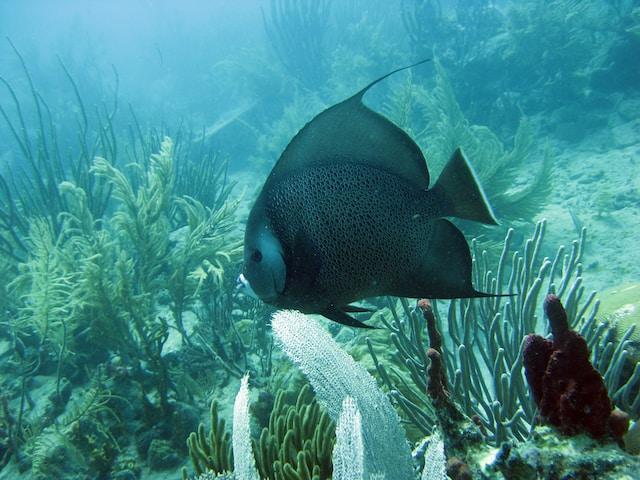Main Responsibilities and Required Skills for an Ecologist

An Ecologist is a professional who studies the relationships between organisms and their environments, aiming to understand the dynamics of ecosystems and contribute to conservation efforts. They play a crucial role in environmental research, management, and policy development. In this blog post, we delve into the primary responsibilities and the most in-demand hard and soft skills for Ecologists.
Get market insights and compare skills for other jobs here.
Main Responsibilities of an Ecologist
The following list describes the typical responsibilities of an Ecologist:
Analyze
Analyze data to study population dynamics.
Analyze soil and water quality.
Analyze the effects of pollutants on ecosystems.
Assess
Assess the ecological impact of infrastructure projects.
Assess the ecological implications of land use changes.
Assess the effectiveness of conservation easements.
Assess the health of aquatic and terrestrial environments.
Assist in
Assist in evaluating data, reviewing reports, and writing report sections.
Assist in project management, resource planning, mentorship to project junior teams.
Assist in the preparation of regulatory approval and permitting applications.
Assist with environmental assessment, management or permitting projects.
Assist with planning, designing and implementation of project field studies.
Assist with the acquisition of environmental permits and / or approvals.
Attract
Attract and manage complex projects, including management of input and technical review of reports.
Collaborate with
Collaborate with government agencies on environmental policies.
Conduct
Conduct bird and insect surveys.
Conduct environmental impact assessments (EIAs).
Conduct field surveys to assess biodiversity.
Conduct field work in accordance with required survey protocols and health and safety procedures.
Conduct research on ecosystem services.
Conduct vegetation surveys and assessments in accordance with applicable protocols.
Conduct wildlife population surveys.
Conduct work according to approved work plan, ensuring procedures are followed.
Design
Design and conduct experiments in controlled environments.
Design and implement habitat restoration projects.
Develop
Develop and implement plans to expand business opportunities in terrestrial or aquatic disciplines.
Develop conservation plans and strategies.
Develop, lead, manage and support aquatic resource and water quality components of projects.
Develop models to predict ecosystem dynamics.
Educate
Educate the public about environmental issues.
Evaluate
Evaluate the effectiveness of conservation measures.
Focus on
Focus on initiating, developing, building and expanding successful client relationships.
Identify
Identify and monitor species habitats.
Identify key clients and work to develop business relationships with these clients.
Identify opportunities for habitat connectivity.
Identify threats to endangered species.
Interpret
Interpret water quality data in relation to aquatic biota, livestock, and / or human health.
Investigate
Investigate the impacts of human activities on ecosystems.
Investigate the spread of diseases in wildlife populations.
Monitor
Monitor and manage invasive species.
Monitor changes in vegetation patterns.
Numerate
Numerate, literate and familiar with IT and software appropriate to the tasks undertaken.
Provide
Provide mentorship and training to junior and intermediate Cambium personnel.
Provide mentorship to other staff members.
Provide project status updates at meetings and via tracking database.
Study
Study design and methods to meet specific project objectives.
Study the behavior of wildlife populations.
Study the effects of climate change on ecosystems.
Study the interactions between species.
Study the migration patterns of animals.
Utilize
Utilize technical writing skills to prepare environmental letters and reports.
Most In-demand Hard Skills
The following list describes the most required technical skills of an Ecologist:
Proficiency in GIS (Geographic Information Systems) software.
Knowledge of statistical analysis software (e.g., R, SPSS).
Familiarity with ecological modeling techniques.
Expertise in species identification.
Understanding of environmental sampling methods.
Skill in data collection and analysis.
Knowledge of remote sensing technologies.
Ability to use GPS and other field equipment.
Experience with habitat mapping and classification.
Understanding of population genetics techniques.
Knowledge of environmental laws and regulations.
Familiarity with ecological monitoring protocols.
Skill in ecological data interpretation.
Experience with habitat suitability modeling.
Understanding of wetland delineation procedures.
Knowledge of plant and animal physiology.
Expertise in ecological risk assessment.
Ability to conduct spatial analysis.
Skill in environmental impact assessment methodologies.
Understanding of landscape ecology principles.
Most In-demand Soft Skills
The following list describes the most required soft skills of an Ecologist:
Effective communication skills for presenting research findings.
Collaboration and teamwork in interdisciplinary projects.
Critical thinking and problem-solving abilities.
Adaptability to changing field conditions.
Attention to detail in data collection and analysis.
Time management and organizational skills.
Patience and perseverance in conducting fieldwork.
Empathy and respect for diverse perspectives.
Leadership and project management capabilities.
Passion for environmental conservation and sustainability.
Conclusion
In conclusion, Ecologists play a vital role in understanding and preserving the natural world. With a combination of technical expertise and soft skills, they contribute to the conservation and management of ecosystems for future generations. As environmental challenges continue to evolve, the skills and dedication of Ecologists remain essential in safeguarding biodiversity and promoting sustainable development.

